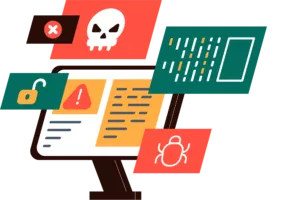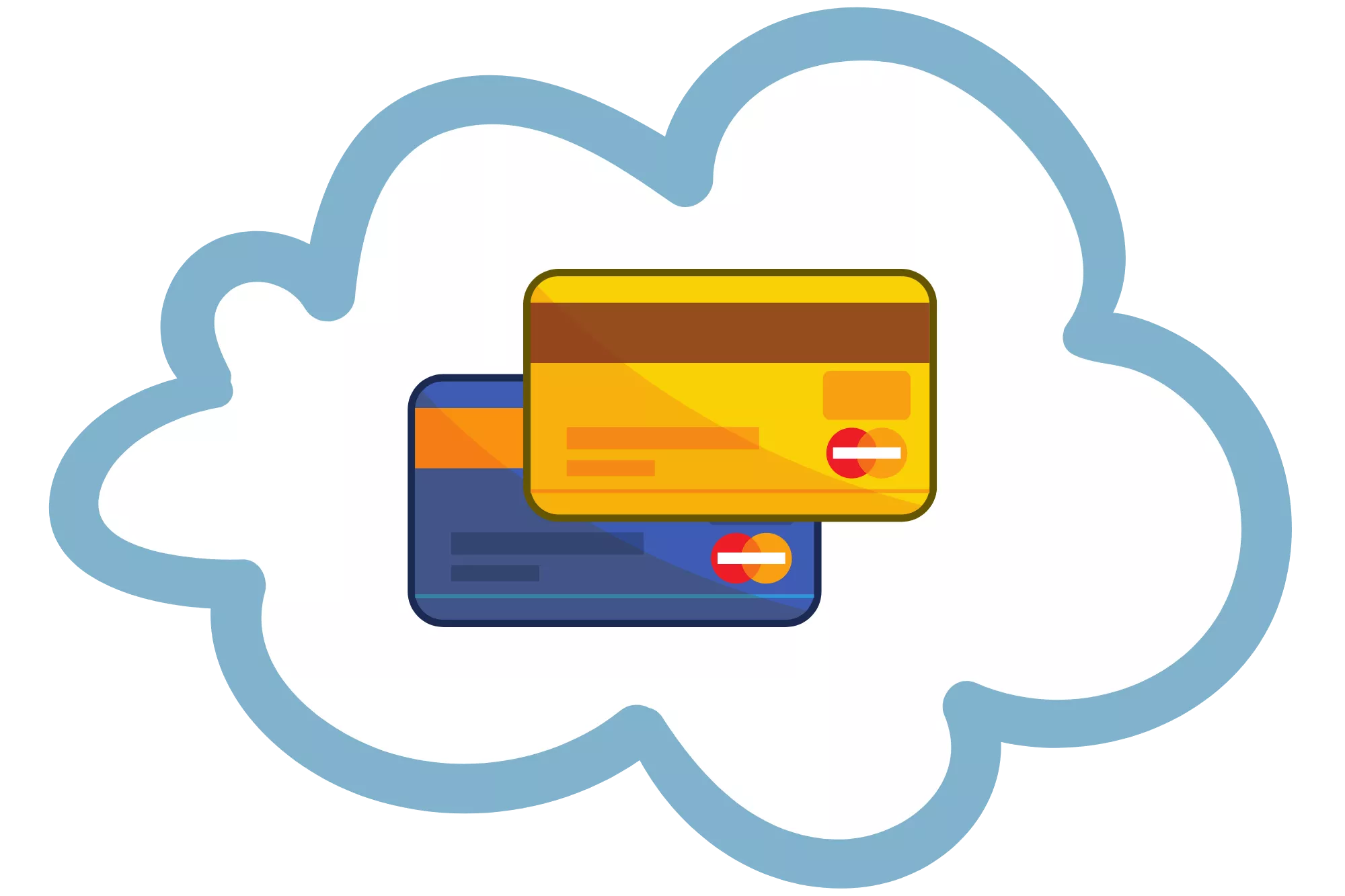
TABLE OF CONTENTS
- What Is AVS and How Does It Work?
- Pros and Cons of AVS for Businesses
- What Does AVS Mismatch Mean?
- How does an AVS mismatch error work?
- AVS Mismatch Error Code Chart
- How Merchants Can Fix an AVS Mismatch Error
- Why do legitimate charges get AVS rejected?
- Why do illegitimate charges sometimes get an AVS match?
- Types of Fraud AVS Can’t Catch
- AVS Mismatch: Final Thoughts
- FAQs About AVS Mismatch
While AVS mismatches are a large part of electronic transactions, they are usually worth the risk for merchants. With the global online payment industry expected to exceed $19 trillion by 2026, there’s no doubt many businesses benefit from accepting digital payments.[1]Globe News Wire. “With 24.4% CAGR, Digital Payment Market Size worth USD 19.89 Trillion in 2026“. Accessed March 10, 2023. So, although digital transactions are quick and convenient, they come with some added risks.
Fraudsters use stolen credit cards to purchase goods and services, leaving merchants in a bind. In 2019 alone, there were more than 270,000 cases of credit card fraud.[2]Self. “Credit Card Fraud Statistics“. Accessed March 10, 2023. Fraud can be particularly challenging for business owners who accept card-not-present transactions, as fraudsters only need a credit card number and few personal details to submit a counterfeit transaction.
Nonetheless, many fraud detection tools can help merchants operating digitally avoid fraud, chargebacks, and other related issues. An AVS, also known as an Address Verification System, verifies core details about a customer’s address to ensure the information submitted corresponds with the data held by the cardholder’s issuing bank. Utilizing an AVS system can significantly help business owners shield themselves from processing stolen credit cards.
This guide explores AVS mismatches, how they work, how merchants can fix a failed AVS check, and a range of other related topics. Let’s jump in!
What Is AVS and How Does It Work?

An Address Verification System is used during card-not-present transactions either online or through a virtual terminal. This system compares the data that a customer submits during a purchase to the data held by the customer’s credit card company. By verifying that a customer entered the correct billing information during checkout, the AVS system ensures payments are only processed if the purchaser uses the correct address.
AVS checks two core components of a customer’s address — the customer’s zip code and the customer’s street number. The details submitted must match the address on file with the cardholder’s credit card company. If either of these data points is incorrect, the transaction will be declined.
Obviously, this doesn’t mean that all fraudulent transactions will be prevented. If a fraudster knows a cardholder’s correct address, they can successfully use their credit card. However, this helps prevent credit card fraud from criminals without access to individuals’ personal information.
Pros and Cons of AVS for Businesses
If your business accepts virtual payments, using fraud and chargeback prevention tools may save you from serious headaches. Not doing so exposes your business to fraud, revenue loss, an increased chargeback ratio, and even merchant account termination. However, as with any system, there are benefits and drawbacks associated with using AVS. Let’s take a look at some of them below:
Pros of AVS
- Fraud Prevention: By requiring your customers to enter the correct address before approving transactions, your business reduces its exposure to card-not-present fraud. If stolen credit card numbers leak online, fraudsters will also need the cardholder’s correct address to bypass the AVS system.
- Chargeback Prevention: Chargebacks are a fraud byproduct. If a cardholder doesn’t authorize a charge, they may file a chargeback to dispute the charge when they realize their card has been used by a scammer. Not only does this mean you’ll need to refund the customer, but this increases your chargeback ratio.
- Instant Process: AVS doesn’t slow down the transaction process, provided the address details are correct.
- Affordable: Lastly, AVS doesn’t cost a lot, making it a cost-effective tool for reducing fraud and instilling confidence in your payment system!
Cons of AVS
- Won’t Stop All Fraud: At the end of the day, AVS cannot stop all credit card fraud. If a fraudster knows a cardholder’s full address, AVS won’t prevent the authorization of the transaction.
- May Stop Legitimate Transactions: If a customer incorrectly inputs their address or is blocked by fraud prevention tools, the system could stop a legitimate transaction from going through, resulting in a false decline. Card transactions may also decline if a customer fails to update their billing address with their card issuer.
- May Result in Complaints: AVS systems may result in customer complaints, potentially exposing you to bad reviews online. While an AVS system is a reasonable tool for blocking fraud, some customers will still be upset if legitimate transactions don’t process.
What Does AVS Mismatch Mean?
The term “AVS mismatch” refers to a mismatch between the address provided by a customer and the address details on file with the card issuer. If you use AVS to prevent fraud, an AVS mismatch will result in a denied transaction.
How does an AVS mismatch error work?
When a customer provides an address during the checkout process, your AVS will check it against the address held by their card issuer. During this process, the AVS checks both the cardholder’s zip code and house number — both have to match for the transaction to clear.
Three outcomes can happen when a customer attempts to verify a transaction through AVS:
- AVS Match: The customer’s provided address matches the address held by the card issuer.
- AVS Partial Match: Either the customer’s zip code or house number matches the address held by the card issuer.
- AVS Mismatch: Both the zip code and house number do not match the address details held by the card issuer.
AVS Mismatch Error Code Chart
If an AVS mismatch occurs, you will receive an AVS mismatch code. However, these codes vary depending on the card issuer. Let’s explore a complete list of AVS mismatch error codes for credit card networks in the table below:
| Code | Visa | Mastercard | American Express | Discover |
| A | Correct street number, incorrect zip code | Correct street number and zip code | Correct street number and zip code | Correct street number, incorrect zip code |
| B | Correct street number, unverified zip code | N/A | N/A | N/A |
| C | Unverified street number and zip code | N/A | N/A | N/A |
| D | Correct street number and zip code (international) | N/A | N/A | N/A |
| E | AVS invalid or not permitted for a specific card | N/A | N/A | N/A |
| F | Correct street number and postcode (UK) | N/A | Correct street number, incorrect customer name | N/A |
| G | Non-US bank (not supporting AVS) | N/A | N/A | N/A |
| I | Street number not verified (international transaction) | N/A | N/A | N/A |
| K | N/A | N/A | Correct cardmember name | N/A |
| L | N/A | N/A | Correct cardmember name and zip code | N/A |
| M | Correct street number and postal code (international transaction) | N/A | Correct cardmember name, street number, and zip code | N/A |
| N | Incorrect street number and zip code | Incorrect street number and zip code | Incorrect street number and zip code | Incorrect street number and zip code |
| O | N/A | N/A | Correct cardmember name and street number | N/A |
| P | Zip code and street number not verifiable (international transaction) | N/A | N/A | N/A |
| R | AVS unavailable (try again) | AVS unavailable (try again) | AVS unavailable (try again) | AVS unavailable (try again) |
| S | AVS not supported | AVS not supported | AVS not supported | AVS not supported |
| T | N/A | N/A | N/A | Correct 9-digit zip code, but the incorrect street number |
| U | Unavailable street number details | Unavailable street number details | Unavailable street number details | Unavailable street number details |
| W | Correct 9-digit zip code, but the incorrect street number | Correct 9-digit zip code, but the incorrect street number | Incorrect cardmember name, zip code, and street number | Correct 9-digit zip code, but the incorrect street number |
| X | Correct 9-digit zip code and street number | Correct 9-digit zip code and street number | N/A | Correct 9-digit zip code and street number |
| Y | Correct 5-digit zip code and street number | Correct 5-digit zip code and street number | Correct 5-digit zip code and street number | Correct 5-digit zip code and street number |
| Z | Correct 5-digit zip code, incorrect street number | Correct 5-digit zip code, incorrect street number | Correct 5-digit zip code, incorrect street number | Correct 5-digit zip code, incorrect street number |
How AVS Mismatch Codes Help Merchants
AVS mismatch codes help merchants simplify the communication process after an AVS decision. Without codes, there would be no standard process for ensuring merchants are aware of the AVS mismatch. However, varying AVS codes for different card issuers make the process slightly more challenging. Always confirm you’re familiar with the latest AVS codes for the card brands your business accepts, as they can change without warning.
How Merchants Can Fix an AVS Mismatch Error

The solution for an AVS mismatch error depends on the merchant’s risk tolerance. Merchants essentially have three options, each with their own potential issues:
- Reprocess the Transaction: First, if you believe the AVS mismatch error is due to a mistake (like a customer entering their address incorrectly) you may choose to reprocess the transaction. If the customer remedies the mistake, the payment should process on the second try.
- Override the AVS Controls to Approve It: Next, your business can choose to override the AVS system to approve the payment. You may decide to do this if you contact the customer and receive additional information indicating they are the cardholder. However, this can expose your business to scammers.
- Cancel the Order: Lastly, if you want to minimize your risk, you can cancel the order if the customer won’t provide accurate address details or update their address with their card issuer. While this reduces your exposure to fraud, it may result in upset customers and poor reviews, so choose wisely.
Make sure to use strong fraud controls if you want to bypass an AVS mismatch and approve the payment. Scammers may try to convince you that they are the cardholder, eventually resulting in a chargeback and lost revenue.
Why do legitimate charges get AVS rejected?
While AVS protects businesses from exposure to fraud, it can also reject legitimate charges. Let’s explore the reasons why legitimate charges may be rejected by an AVS:
- Customer Mistake: If a customer makes a mistake, such as entering the incorrect zip code, this will result in an AVS rejection.
- Previous Billing Data Held By Card Issuer: If the customer’s card issuer holds previous address data instead of the customer’s current address, this may result in a legitimate charge being rejected.
While both of the above issues are easy to fix, they can have lasting effects on businesses. Customers may go elsewhere if they experience any hiccups in the checkout process, so keeping these errors to a minimum is essential while using AVS.
Why do illegitimate charges sometimes get an AVS match?
On the other hand, sometimes illegitimate charges receive an AVS match, resulting in the approval of fraudulent charges. As previously discussed, AVS is not a bulletproof system for fighting fraud. If a scammer can access a cardholder’s correct street number and zip code, they can enter it in and bypass the AVS system.
Types of Fraud AVS Can’t Catch
Let’s explore some types of fraud AVS won’t catch:
- Friendly Fraud: Friendly fraud refers to instances in which cardholders file chargebacks for legitimate charges on their credit cards. This includes situations in which the customer falsely claims their credit card was stolen or they never received a package when they actually did. With friendly fraud, the cardholder knows their own address and won’t have any issues bypassing AVS.
- Advanced Fraud: If a scammer puts enough effort into their fraud, they will likely be able to bypass AVS. As previously discussed, if a thief obtains address information in addition to credit card information, the address verification system won’t work.
AVS Mismatch: Final Thoughts
AVS helps businesses all over the world protect themselves from fraudulent charges while accepting payments. If you want to reduce your exposure to fraud and chargebacks, implementing AVS is a great place to start. By partnering with a merchant services provider, you can obtain a payment gateway with AVS fraud prevention and unlock an extra layer of protection for your payment operations!
FAQs About AVS Mismatch
What does AVS rejected mean?
If your AVS check results in a rejection, this means your customer’s address does not match its payment details. If an AVS check failed, call your customer to discuss the problem. In some cases, the customer may have entered the incorrect address or forgotten to update their new address with their card issuer.
How do AVS and CVV differ?
CVV verification is a separate fraud prevention tool. With AVS, the system checks a customer’s address against the address on file with their card issuer. With CVV verification, the system verifies the customer’s correct CVV — a three or four-digit number printed on the customer’s credit card. CVV verification ensures a customer has access to both the credit card and CVV numbers, making it harder to use stolen credit card data.
Businesses often use both AVS and CVV verification to avoid scammers.
Should every AVS mismatch order be rejected?
Not necessarily. If you can verify the cardholder’s identity through other means, you may decide to bypass the AVS and approve the transaction. However, this will expose you to additional risks.
What if a transaction is declined due to AVS settings?
If a transaction declines due to AVS settings, you can choose one of the three next steps: cancel the order, process the order, or resubmit the payment. However, if you bypass the AVS system and process an order, you should perform other identity checks to confirm the cardholder authorized the transaction.
Are orders always legitimate if the AVS matches?
No. While AVS provides good protection from scammers, it’s not entirely secure. If a scammer has a cardholder’s address, it’s easy to bypass AVS. This is why it’s important to have other fraud prevention tools in place.
What if I get an AVS mismatch, but the address is correct?
If you receive an AVS mismatch, but your customer proves their address is correct, it may be because they have failed to update their address with their card issuer. There may be other reasons the AVS doesn’t match, but the mismatch error code should provide additional clarification as to why your business received a mismatch.
Is every AVS mismatch order fraudulent?
No, not every AVS mismatch points to fraud. If a customer inputs their address incorrectly or fails to update their address with their card issuer, it may result in an AVS mismatch. Contacting your customer to discuss the AVS mismatch may help you avoid a second mismatch when you reattempt the payment.






